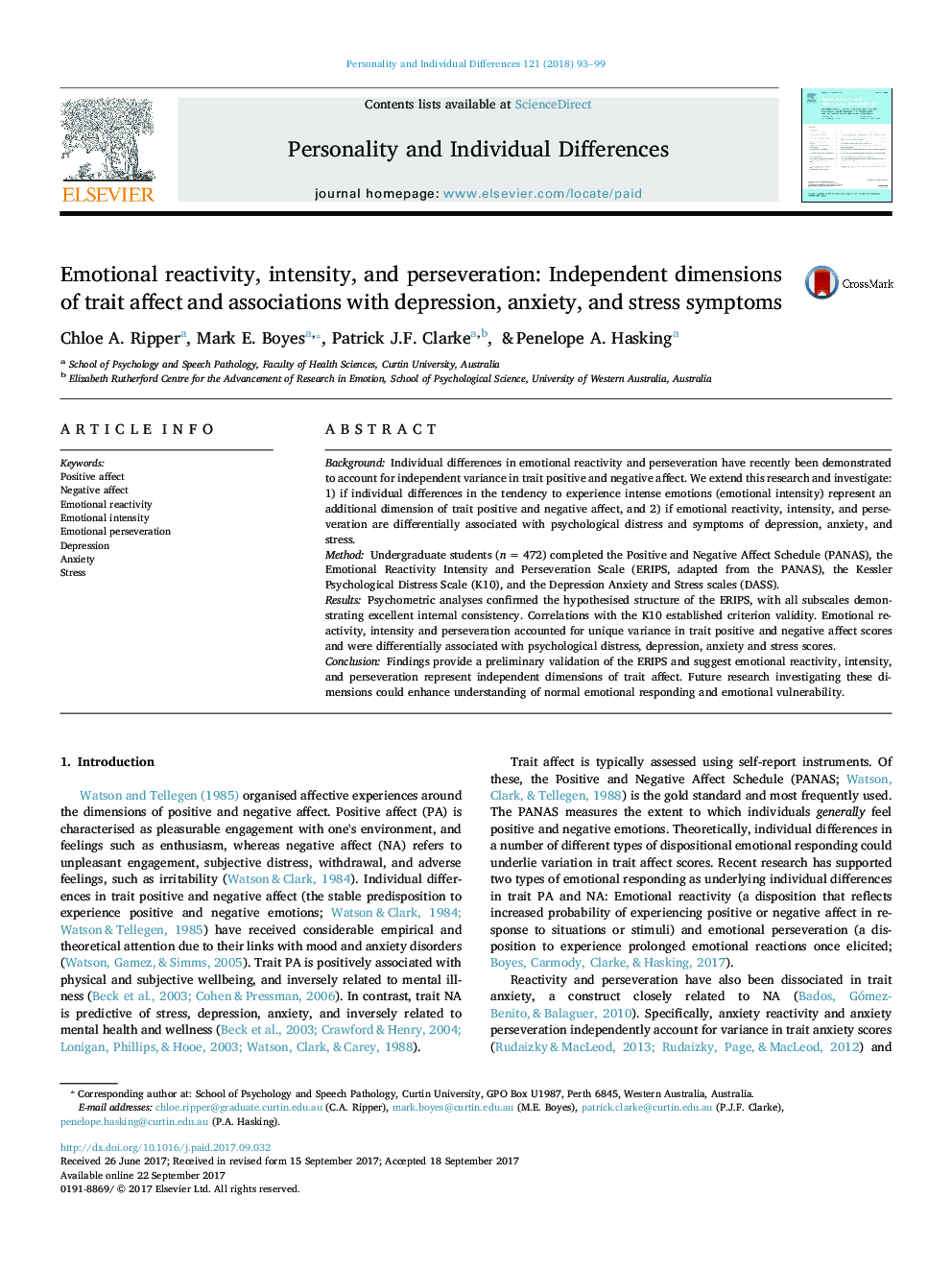| Article ID | Journal | Published Year | Pages | File Type |
|---|---|---|---|---|
| 5035485 | Personality and Individual Differences | 2018 | 7 Pages |
â¢We propose three dimensions of trait emotion (reactivity, intensity, perseveration).â¢We establish the psychometric properties of a measure of these dimensions.â¢These dimensions account for unique variance in trait PA and NA.â¢These dimensions are differentially associated with depression, anxiety, and stress.
BackgroundIndividual differences in emotional reactivity and perseveration have recently been demonstrated to account for independent variance in trait positive and negative affect. We extend this research and investigate: 1) if individual differences in the tendency to experience intense emotions (emotional intensity) represent an additional dimension of trait positive and negative affect, and 2) if emotional reactivity, intensity, and perseveration are differentially associated with psychological distress and symptoms of depression, anxiety, and stress.MethodUndergraduate students (n = 472) completed the Positive and Negative Affect Schedule (PANAS), the Emotional Reactivity Intensity and Perseveration Scale (ERIPS, adapted from the PANAS), the Kessler Psychological Distress Scale (K10), and the Depression Anxiety and Stress scales (DASS).ResultsPsychometric analyses confirmed the hypothesised structure of the ERIPS, with all subscales demonstrating excellent internal consistency. Correlations with the K10 established criterion validity. Emotional reactivity, intensity and perseveration accounted for unique variance in trait positive and negative affect scores and were differentially associated with psychological distress, depression, anxiety and stress scores.ConclusionFindings provide a preliminary validation of the ERIPS and suggest emotional reactivity, intensity, and perseveration represent independent dimensions of trait affect. Future research investigating these dimensions could enhance understanding of normal emotional responding and emotional vulnerability.
